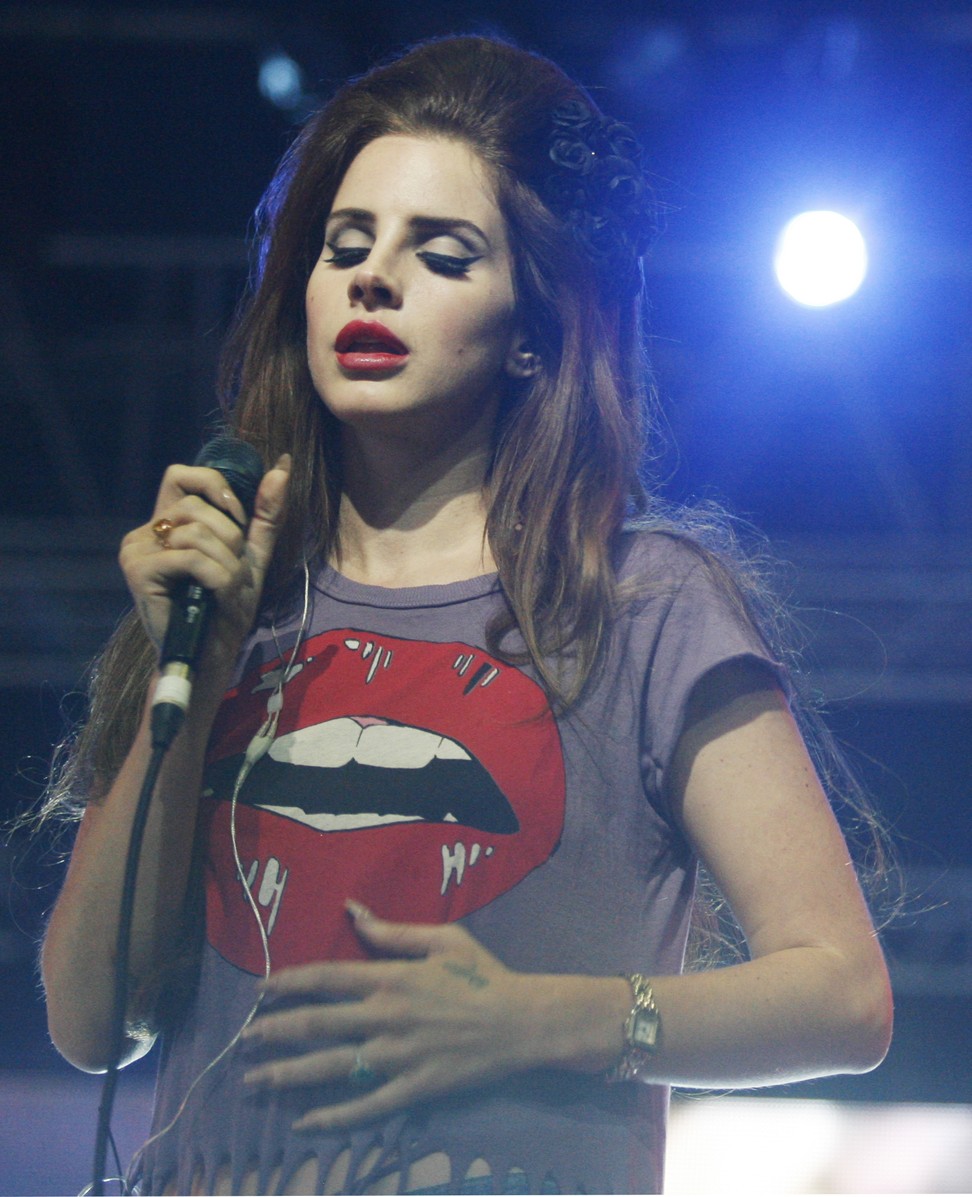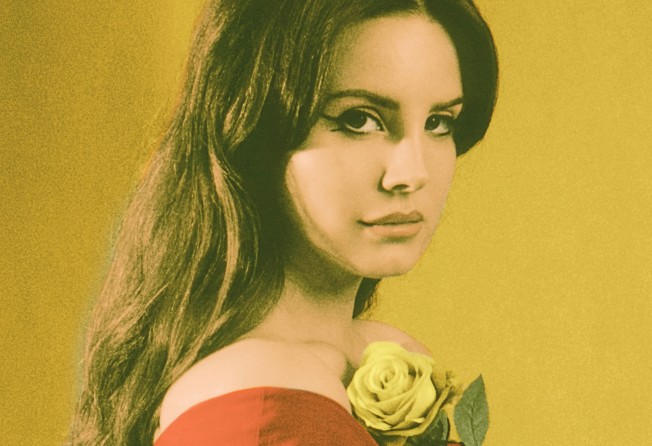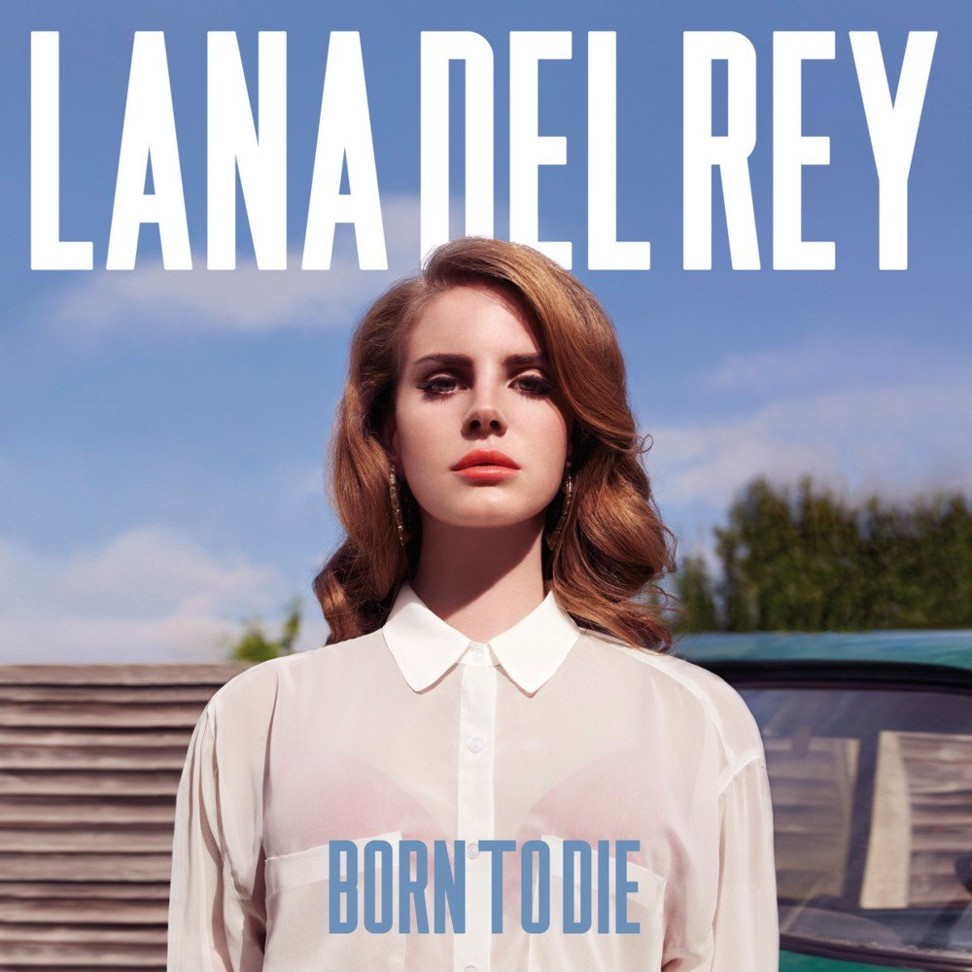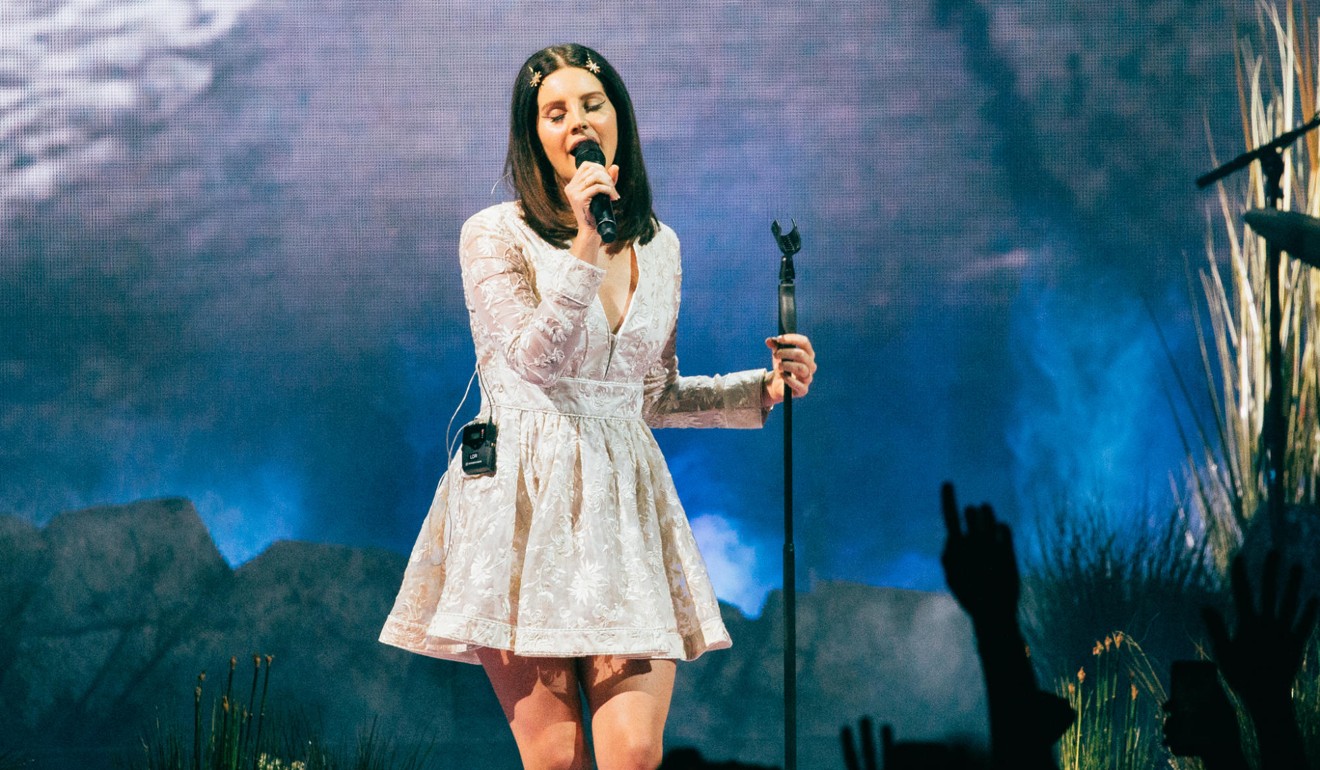
Lana Del Rey: ‘I’m not trying to create an image. I’m just singing because that’s what I know how to do’
- Lana Del Rey released Born To Die in 2011, and critics have been struggling to define her unique style
- Her latest release, Norman F****** Rockwell, is no exception, still polarising critics and winning new fans

Here’s a wild idea: what if Lana Del Rey is exactly who she says she is?
Her music keeps making us think otherwise. It’s still too elegant, too plush, too slippery to be real. Maybe that’s why, in concert, she likes to talk about a song after she sings it, as if to confirm that it wasn’t just a puff of Chanel No 5 in our collective imagination.
Almost everyone would have heard Norman F***ing Rockwell! by now. It’s the greatest Lana Del Rey album, dizzying and precise, unknowable and lucid, unprecedented while still feeling like more of the same, genius all the way. She’s still blowing thought bubbles from the privacy of her mind into the slipstream of the American dream, but this time she’s pared down the studio production and cranked up the paradox. The more beautiful her music becomes, the stranger it feels. It’s a triumph.
For years, the easiest way to reconcile the strangeness of Lana Del Rey was to tell ourselves that we were listening to a persona. Here was a remote pop star dream journaling from a perspective too fabulous to belong to an actual human being.

Del Rey has rejected that idea from the start. When NPR published a deep, diligent, largely flattering review of her new album last month, Del Rey took issue with its mention of personae and blasted back on social media: “Never had a persona. Never needed one. Never will.”
Back in 2011, at the dawn of her fame, she told Pitchfork, “I’m not trying to create an image or a persona. I’m just singing because that’s what I know how to do.”

Now she has made an album where she’s patrolling the margins of her psyche and relaying her findings, whispering hyper intimate lullabies that can feel as exquisite and disorienting as reality.
She’s not a mirage. Her music isn’t a magic trick. She believes in songcraft as truth telling. Why not believe her?
During a recent interview in Santa Barbara, she answers questions about her creative impulse in a tone of voice that’s bright, casual, searching and sincere. She doesn’t sound embattled. “I, maybe at one point, thought of it as being on the firing line,” she says of the scepticism she has faced over the years. “But once you’re on the line, you’re like, ‘Oh, it’s not all bad’ … There is kindness, and it’s not all speculation.”
I just kind of write whatever comes to mind. ‘I didn’t do anything today, I didn’t do the laundry today, dah-dah-dah’
That’s one way to explain the flood of hot and cold unleashed upon Born to Die , Del Rey’s polarising 2012 album. As pop albums go, it was difficult to hear clearly at the time. The singer’s rise out of the New York open mic circuit and up through the industry machinery, while not atypical, had been spun into a bogus media narrative about how she wasn’t operating on her own creative volition, as if her songs had been focus-grouped into existence.
On top of that, Born to Die landed at a time when a pop hit was expected to double as a melodic affirmation, a self-esteem vitamin, a danceable pep talk. Del Rey was different, and so was her music. “I have a more delicate sensibility,” she says. “It’s just my nature, the way I’m not fast or on fire.”
Instead, she wrote ballads about surrendering to romantic oblivion – songs that made many listeners bristle on principle, even if Del Rey was telling her truth. “It’s you, it’s you, it’s all for you,” she gushed on her breakout single Video Games, a self erasing love song about a distant lover who’s more concerned with the pixels on his computer screen.
“I remember when Video Games came out, people were like, ‘Oh my God, it’s so antifeminist’,” Del Rey says. “‘You’re sitting and watching him play video games?’ I was like, ‘Well, I would play, too, now and then.’ And I had other stuff I was doing. I wrote a hit album! Can’t I take an hour to watch him play Wor ld o f Warc raft?”
She continued to grow into her ideas while listeners demanded to know what her music meant, who it spoke for, what it stood for. Del Rey may not have answered directly, but she was listening. “What it taught me is that they saw more,” she says. “They thought there should have been more there. Like, a different path than maybe what I was laying down.”
Has her work been over interpreted? Not necessarily. Listeners will blaze their own paths into and out of any piece of music. Del Rey does it, too. One of her most potent writerly devices involves recycling old lyrics from classic songs. Earlier in her career, it sounded like cheating off someone else’s paper, like she was spackling holes in her verses with mundane swatches of radio haiku – lyrics from Tom Petty, Snoop Dogg, Patsy Cline, David Bowie and dozens more.

So she uses songs the way we all do. She lets them float around in her head space, inviting them to speak for her whenever a lyric syncs up with daily life. Still, she seems to be doing something extraordinary with them on this new album – especially during The Greatest, a dazzling slow dance about cultural exhaustion during which Del Rey references the death of Beach Boys drummer Dennis Wilson: “I miss the bar where the Beach Boys would go, Dennis’ last stop before Kokomo.”
With breath stealing efficiency, that line transforms Kokomo from an imaginary timeshare into the afterlife itself – which seems to transform the original ditty into a murder ballad. And that feels radical. Del Rey isn’t just nodding to her heroes. She’s using her own lyrics to change the meaning of their songs.
So who is she writing this music for? She pivots to the album’s title track, a blunt force piano ballad in which the singer tells her “man-child” boyfriend, “Your poetry’s bad and you blame the news.” Does she write a song like that for herself? For the world? For the microphone? For the moment? “I felt like it was supposed to come out in a particular way,” she says. “So it’s more, like, for the song.”
Writing the song for the song. Without saying it outright, that approach seems to remove the notion of persona from her music completely.
Then Del Rey begins to explain a new journaling routine that she has been practising toward the end of each day. “It sounds kind of hippy-dippy, but there is, like, a little process that reveals itself to me and is revealing to me about myself,” she says. “I just kind of write whatever comes to mind. ‘I didn’t do anything today, I didn’t do the laundry today, dah-dah-dah.’ And then, before you know it, you get a page in, and you start writing things, and it’s like, ‘Oh, who’s writing that?’ ”
I’m not trying to create an image or a persona. I’m just singing because that’s what I know how to do
Wandering around the margins of your consciousness can lead you to the centre of your self. Jotting down things you didn’t actually do can tell you what you’re really doing. Ultimately, it “has to do with writing one’s own narrative,” she says. “How does one do that? One actually physically writes their own narrative.”
Never had a persona. Never needed one. Never will.